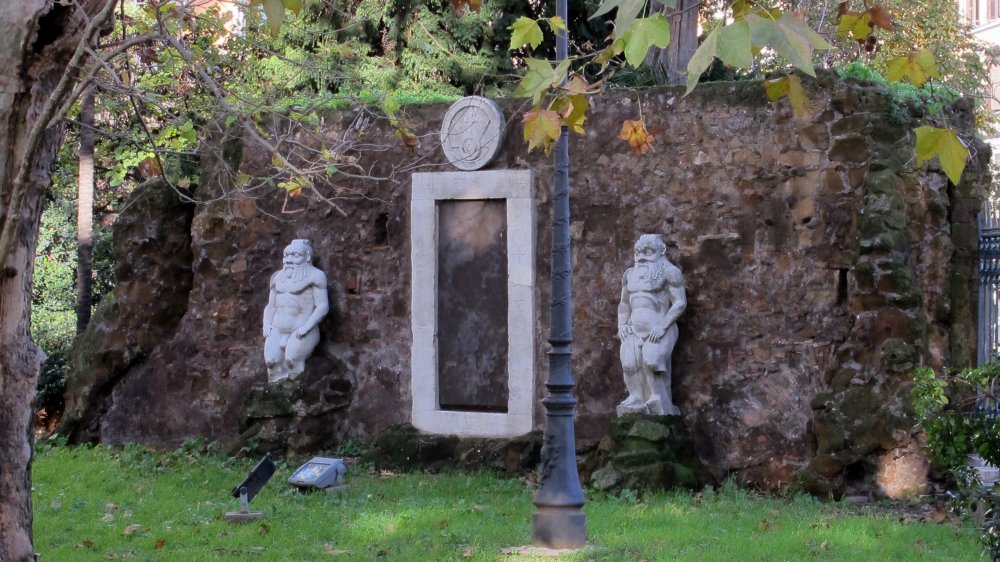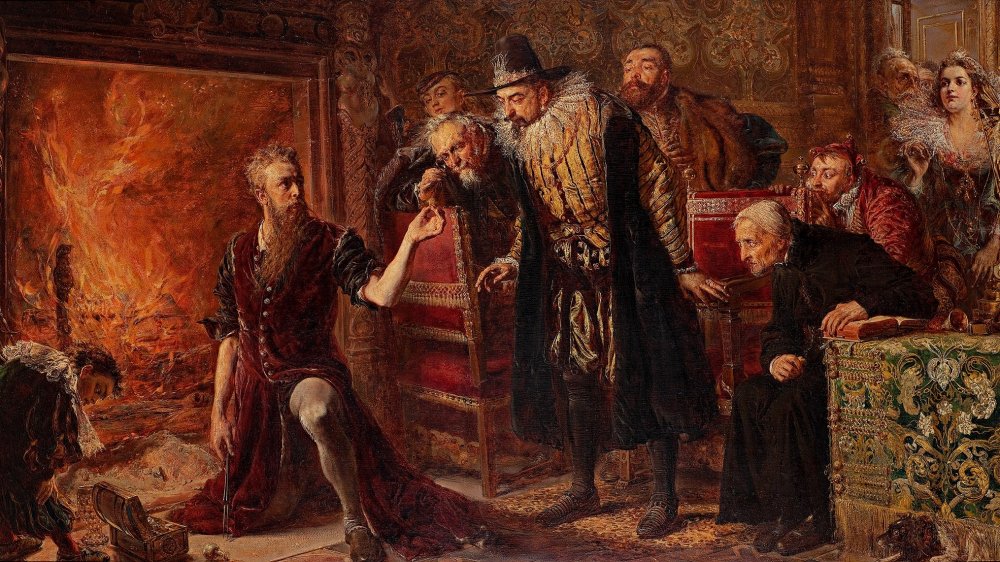The Magical Door You've Never Heard Of In Rome
A magic portal to a magic realm full of magical mystery, wonder, and ... let's say magic. Settled amongst greenery on the side of the road in Rome, made of stone and set in a little square hillock, flanked by two gnomish statues, wherein the most obscure and esoteric of disciplines, alchemy, is practiced and perfected, and out of a mixture of alloys and herbs comes ... pure gold. And we don't mean comedic gold, although you'd be forgiven for thinking so.
No, this isn't something out of Pan's Labyrinth, a Neil Gaiman short story, the wardrobe that C.S. Lewis wrote about, or that tiny door Alice ran into to enter Wonderland. Porta Alchemica is an actual door in modern-day Rome, in a park next to Piazza Vittorio Emanuele, practically smack dab in the center of the city. And when we add the Renaissance, regents, nobles, philosophers, and the odd occult superstition into the mix, well, the reality of Porta Alchemica does indeed start to sound like something stranger than fiction. This particular door, however, can't be entered by reading aloud runes that appear in spindly silver across its surface during the full moon.
According to legend, though, there is indeed something inscribed on the door, by the Marquis Massimiliano Palombara (1614–1680) — author, Conservator of Rome from 1651 to 1677, and member of "The Alchemists of Palazzo Riario," per Atlas Obscura. The marquis's villa had five doors, and he etched into each door a secret alchemical recipe.
The final fragment of an alchemical puzzle
As the story goes, Marquis Palombara was a big believer in alchemy, along with his crew in the heyday of the Italian Renaissance. Christina, Queen Regent of Sweden, held court with renowned thinkers such as Rene Descartes and Athanasius Kircher, who along with Palombara and many others sought to plumb the mysteries of reality, the occult, and the transmutation of physical objects into the purest of forms, gold, as described in Live Science. Alchemy, as a pre-scientific discipline, has roots in medieval thought, and saw the world as composed of the four elements of air, fire, water, and earth. Metals were not discrete substances, but materials undergoing a process of perfection to higher forms, much like the human spirit.
Palombra, as a believer in this line of thinking, apparently met a master alchemist at a dinner party one night. The man, most likely identified as one Giuseppe Francesco Borri, swore that he could take some herbs hanging around the house, plus some metal, and spin them into gold. He was left to do his thing, and in the morning left behind some gold flakes and an alchemical recipe on an "indecipherable sheet."
Seeing as the recipe was indeed indecipherable, Palombra decided to inscribe it on the doors to his villa in the hopes that someone would be able to translate it. Porta Alchemica near modern-day Piazza Vittorio Emanuele is the final remaining door to Palombra's villa, and a bizarre, fascinating fragment of history.

